Why I Love Pittsburgh, Reason # 3
Pittsburgh Cultural District
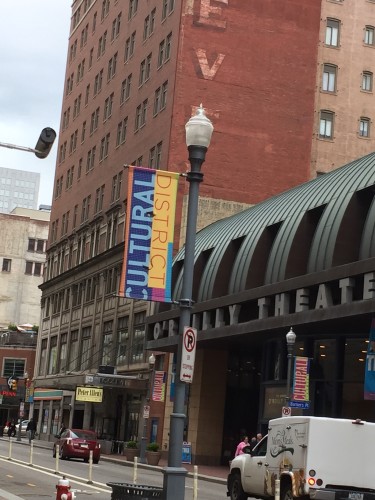
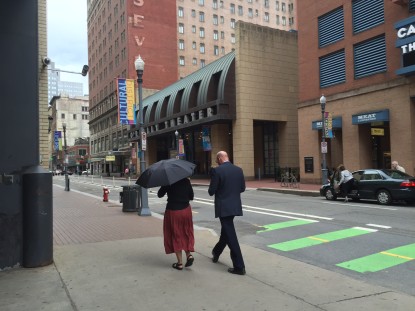
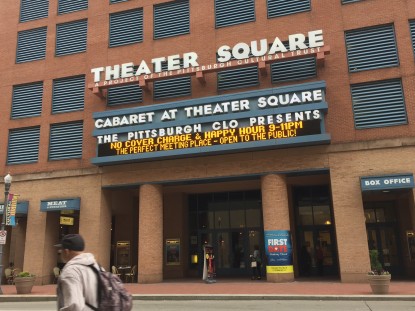
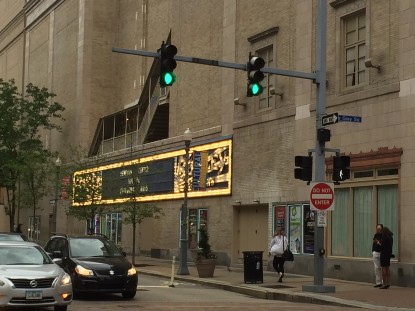
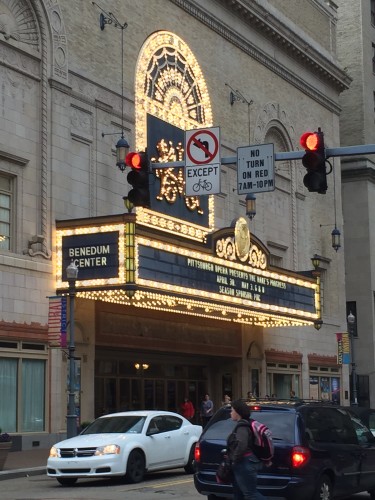
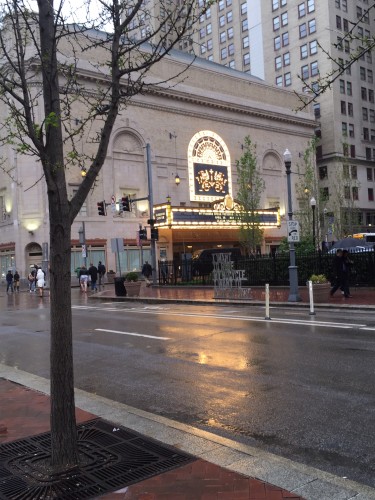
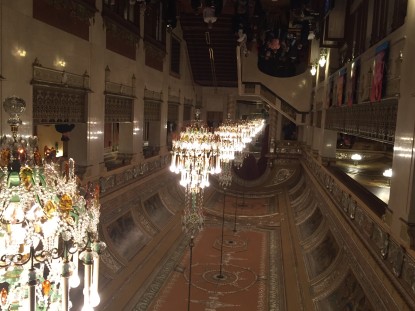
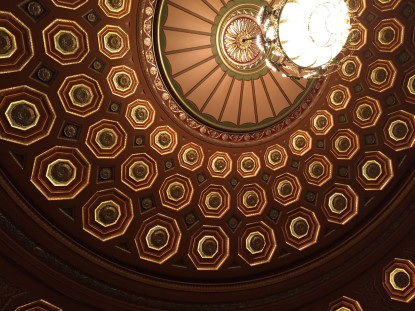
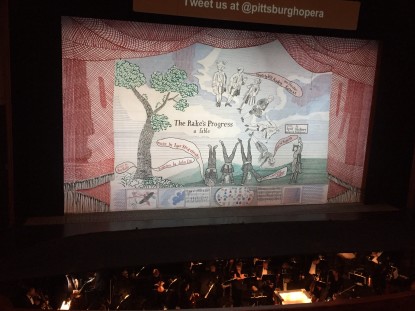
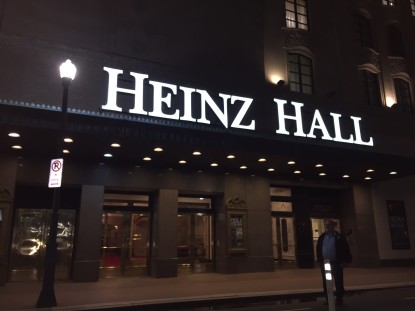
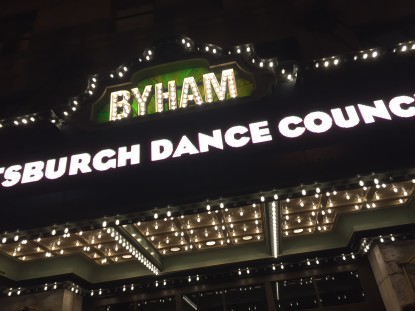
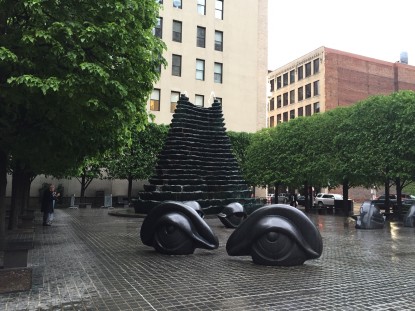
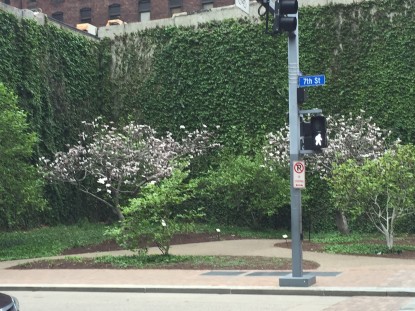

The reason #3 why I love Pittsburgh is its Cultural District. Opera, play, ballet, and symphony stir my soul, the purpose of all art. The stories told in verse and prose puncture the repose of routine, and they are essential for frequent reawakening.
Recently, Pittsburgh Opera’s “The Rake’s Progress” at the Benedum and Pittsburgh Public Theatre’s “Disgraced” at the O’Reilly succeeded in stirring my spirit in spades. One of my favorite artists, David Hockney, designed the sets in cross-hatching technique, eccentric costumes and childlike wigs. His props and designs reinterpret Stravinsky’s opera for the stage. Stravinsky was himself influenced by engravings of William Hogarth, an 18th century artist. Hockney felt that Hogarth’s precise cross-hatching technique perfectly suited the jagged and linear character of the score.
Pittsburgh Public Theatre’s “Disgraced” elevated my humanity a notch. As mentioned above, this is the goal of all art and necessary in the present religious and sociopolitical milieu. Good theatre hits me in my gut, touches my heart and awakens me from the slumber of my daily routine.
Ayad Akhtar, 2013 Pulitzer-winning playwright of “Disgraced,” makes actors pour out their passion in dialogue. The crux of the play is during Act III, the dinner scene at the Kapoor home. Amir Kapoor is a Pakistani-American lawyer and Amy, his Jewish wife, is an artist. Issac, a museum curator and his wife Jory, an African-American lawyer, join them for dinner. The four supposedly civilized and successful New York professionals revel in raw emotions and resentments that lurk below their seemingly sophisticated veneers. The alcohol-drenched evening gradually turns into a verbal battleground when each character collides and explodes. Secrets are revealed, betrayals emerge and long-suppressed opinions and beliefs erupt. When hidden feelings are out, the atmosphere sizzles and ends with disastrous results.
Pittsburgh Cultural District (PCD) was the brainchild of Jack Heinz II, (1908-1987), father of Pennsylvania Senator John Heinz. Established in 1984, PCD realized Jack’s vision by restoring magnificent movie places.
Lowe’s Penn Movie Theatre was built in 1927 but faced competition from television and suburban theaters. It fell on hard times in the 1960s, was shut down in 1964 and was even scheduled for demolition. But thanks to PCD it was rescued, renovated and renamed Heinz Hall. This magnificent concert hall is home to the Pittsburgh Symphony since 1971 and seats 2,676.
Another visually stunning former movie place, the Stanley Theater, was first opened in 1928. Known as “Pittsburgh’s Palace of Amusement,” the theatre reopened in 1987 with 2,885 seats, and was renamed the Benedum Center for the Performing Arts.
The third major theater venue restoration project of the PCT was the Byham. Built in 1903, it was originally called Gayety Theater. In 1930 it was renamed the Fulton. In 1990, the Pittsburgh Cultural Trust refurbished it and changed its name to Byham Theatre.
In 1999, the PCT’s 650-seat O’Reilly Theater opened as the permanent home of the Pittsburgh Public Theater. Adjacent to the theatre is the Eyeball Park, where three pairs of large eyeball-shaped granite benches surround a 25-foot pyramid-like terraced fountain, the centerpiece. The steeped staggered sculpture was inspired by the indigenous hills.
Closely planted linden trees enclose this sculptural group. Across the street is another outdoor artwork, Magnolias for Pittsburgh. In deep winter when I walk from the parking lot to the CAPA theatre, I pass two “fully-blossomed” magnolia trees some of which hold snow. What a sight! About 800 in number, the flowers are made of painted cast bronze petals. Made by Tony Tasset, Magnolias for Pittsburgh tricks passers-by with their vibrant blossoms covered in snow when the five live magnolia trees around them are dormant.
While the two all-year small parks make a magical fairytale atmosphere outdoors, the plays, operas and symphonies create dreamtime inside the magnificent theaters.

